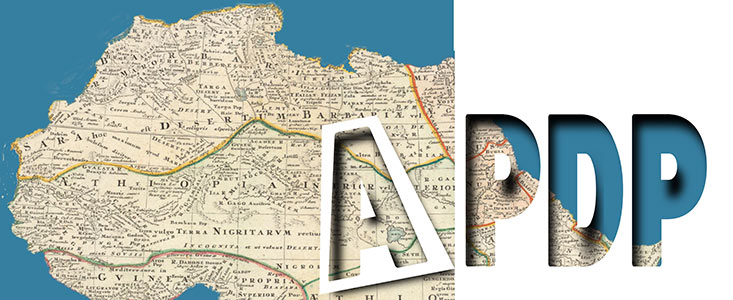A Survey of African Poetry in the London Times, Sunday Times, Financial Times, the Times Literary Supplement 1865-1985
Kofi Awoonor: The Unsung Poet From Ghana
Dr Kofi Awoonor (1935-2013) was born Kofi Nyidevu Awoonor-Williams and was christened George. He studied in Ghana, England, and the United States. He was a poet, novelist, playwright, and critical essayist. Awoonor's published poetry collections include, but are not limited to: The Latin American and Caribbean Notebook(1992), The House by the Sea(1978), Ride Me, Memory(1973), Night of My Blood(1971), Until the Morning After(1987), and Rediscovery and Other Poems(1964). His other creative works include Comes the Voyager at Last(1992) and This Earth, My Brother(1971). His critical non-fiction works include The African Predicament: Collected Essays(2006), Ghana: A Political History from Pre-European to Modern Times(1990), and The Breast of the Earth: A Survey of the History, Culture, and Literature of Africa South of the Sahara(1975).
Between 1972 and 1976, Kofi Awoonor was featured four consecutive times in The Times newspaper and The Times Literary Supplement, and in each mention, he was cited as a "Ghanaian poet." Yet, the only time his work was reviewed was when his newly published novel This Earth My Brother... was the text of focus. None of his earlier poems were ever given a review in The Times.
The March 1972 Times Literary Supplement review describes Kofi Awoonor as "a learned Ghanaian poet with an evident gift for narrative (when he chooses to exercise it), and he ought to be a good novelist...". The review proceeds to indicate that parts of his novel contain "short sketches about his growing up in west Africa, which we would be pleased to find in magazines". The review adds that the text includes the "misprinted Latin exhortation (for "pleban," read "plebam"). The Times reviewer further adds that several of the chapters are written with "contemptuous obscurantism," "banal generalisations," "pompous allusiveness," and "a worked out hysterical morbidity." The reviewer concludes that "there is no doubt that Kofi Awoonor could write a very good novel."
Any reviewer of literary texts backs their analysis with textual evidence. The Times Literary reviewer attempts only on one occasion to show textual evidence by quoting the so-called ‘misprinted Latin exhortation' in Awoonor's This Earth, My Brother. That attempt is commendable; however, has the reviewer ever heard of poetic licence and play on words? Or should one presume that he deliberately closed his mind to such a possibility in Awoonor's work? To describe someone's text as full of "contemptuous obscurantism," "banal generalisations," "pompous allusiveness," and "worked out hysterical morbidity" without any textual evidence and then to make a sudden U-turn and declare that Awoonor could be a good novelist, the operative word being "could," is very problematic. How could a review made up of derogatory epithets end up meeting the house style of one of the world's most renowned newspapers and get published? But it is no surprise that this critic is continuing Western critics' indiscriminate review of African work.
The Times was generous enough to turn its focus on Kofi Awoonor on three other occasions, 26th of August 1976, 9th of October1976, and 28th of October 1976. The August 1976 news item report indicated that Ghana had cancelled a visa issued to magistrate Sir Osmond Williams, a British citizen, who was to serve as a witness in the trial of Ghanaian poet Dr Kofi Awoonor. Awoonor was on trial for sheltering Brigadier Kojo Kattah as the latter faced treason charges for an attempted coup d'état.
The October 9th news item, titled "Verdict on Ghanaian Poet," reported in part that a judgement would be given on October 29th. It was added that Dr Kofi Awoonor had denied ever granting shelter to Brigadier Kojo Kattah, a man suspected of having a hand in the abortive coup d'état that attempted to overthrow General Ignatius Kutu Acheampong's Supreme Military Council (S.M.C.) government.
Finally, the October 28th issue of The Times Literary Supplement carried a story captioned "Ghana Military Grants Pardon to Jailed Poet." This report on Kofi Awoonor indicated that "a Ghanaian poet and lecturer" was "convicted and sent to prison a year on the charge of aiding the escape of Brigadier Alphonse Kattah, who was alleged to have instigated an abortive coup last year" (that is 1975). In 1975, Kofi Awoonor returned to Ghana and began teaching as a lecturer at the University of Cape Coast for many years before moving on to teach at the University of Ghana, Legon.
Indeed, 1976 was a challenging year for Kofi Awoonor as his life was on the line because the military was on high alert, arresting and executing individuals presumed to be plotting against the military government of Ignatius Kutu Acheampong, the sixth head of state of Ghana (1972-1978). This state of emergency notwithstanding, Awoonor was repeatedly featured not as any ordinary Ghanaian individual but as a "Ghanaian learned poet" by The Times. This esteemed title marked him off for greater scrutiny, yet, the news reporter did not find it prudent to mention in passing or comment on any of the works that earned Awoonor that unique identity. Readers of the issue who might have had their first-hand knowledge of Kofi Awoonor on reading this article might be asking themselves: who is this poet? What are his poems like? Coming events, they say, cast their shadows; could the 1972 Times review of This Earth My Brother have any relationship with the cruel absence of any focus on Awoonor's poetry? Could it be the case that his poems were deemed not ‘fit enough to be given a mention'? One could only surmise because the silence on Awoonor's poems is too loud to be ignored.
Bio:
Akua Agyeiwaa Denkyi-Manieson is a doctoral student in Literary and cultural studies at the Department of English, University of Nebraska, Lincoln. She hails from Ghana and specializes in the Gold Coast Novels.


